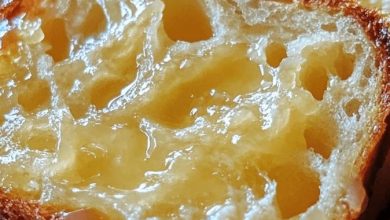Mama’s Cornbread Dressing Recipe

If you’re looking for a heartwarming, classic Southern side dish, Mama’s Cornbread Dressing is the perfect choice. This beloved recipe has been passed down through generations and is sure to become a staple at your family gatherings. The combination of crumbled cornbread, sautéed veggies, and a blend of seasonings creates a dish that’s both savory and comforting. In this article, we’ll walk you through the steps to make Mama’s Cornbread Dressing and share some insights into the history and traditions associated with this dish.
ADVERTISEMENT
Ingredients:
Before we dive into the detailed recipe, let’s take a look at the ingredients you’ll need:
ADVERTISEMENT
| Ingredients | Amount |
|---|---|
| Crumbled cornbread | 3 cups |
| Butter | 2 tablespoons |
| Onion, diced | 1 small |
| Celery, chopped | ½ cup |
| Eggs, beaten | 2 large |
| Chicken stock | 2 cups |
| Dried sage (adjust to taste) | 1 tablespoon |
| Salt and ground black pepper | To taste |
Instructions:
Now that we have our ingredients ready, let’s proceed with the step-by-step instructions to make Mama’s Cornbread Dressing:
ADVERTISEMENT
Preheat Oven
- Start by preheating your oven to 350°F (175°C). This will ensure that your dressing cooks evenly and turns out perfectly.
Sauté Veggies
- In a skillet over medium heat, melt the butter. Add the diced onion and chopped celery. Sauté them until they become translucent and tender, which should take around 5 minutes. This step adds a delightful aroma and flavor to your dressing.
Mix Ingredients
- In a large mixing bowl, combine the crumbled cornbread, sautéed vegetables, beaten eggs, chicken stock, and dried sage. Mix thoroughly until all the ingredients are well combined. This is where the magic happens, as the flavors meld together to create a rich and savory mixture.
Season
- Add salt and ground black pepper according to your taste preference. If you’re a fan of a stronger sage flavor, feel free to sprinkle a bit more at this point. Seasoning is crucial to bring out the flavors in the dressing, so adjust it to your liking.
Transfer & Bake
- Pour the mixture into a greased baking dish, spreading it out evenly. Pop it into the preheated oven and bake for 45 minutes or until the top turns a delightful golden brown and the dressing is set. This step ensures a crisp, golden crust and a moist interior.
Serve & Enjoy
- Once baked, let it cool slightly before serving. Pair Mama’s Cornbread Dressing with your favorite main dishes and enjoy the comforting taste of home. This dish complements roasted turkey, baked ham, or even as a stand-alone side.




